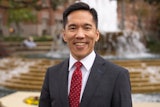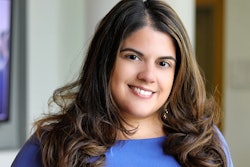Just as the debate over resources has simmered down with a debt deal in Washington, policy analysts heated things up at a forum in New York City over the precious resources in higher education.
Hosted by the Century Foundation, a public policy think tank, the panel discussion “Who Deserves a College Education?” zoomed in on the argument that too many people are going to college and recent challenges to affirmative action.
“Right now, in this current economic environment these issues become razor sharp—people tend to be more magnanimous about issues of diversity and who gets in colleges when everybody is making money and doing well,” said Christy DeBoe Hicks, vice president for public affairs at the Century Foundation.
Richard Kahlenberg, a senior fellow at the foundation, rebuffed the argument that too many people are filling up seats on college campuses.
“In the 1980s, college graduates earned about 40 percent more than high school graduates,” said Kahlenberg. “Today, college graduates earn about 74 percent more than high school graduates. So the advantage of going to college has increased. Supply and demand are out of whack.”
While the panel took place at the Century Foundation’s offices in Manhattan, Kahlenberg and panelist Dr. Ann Marcus, director of the Steinhardt Institute of Higher Education Policy, drew from a debate that’s been swirling after the publication of the book In the Basement of the Ivory Tower: Confessions of an Accidental Academic.
The author of the book, Professor X, a government employee who works as an adjunct professor at a community college, elaborates on how some people who aspire to working in more technical fields do not need to go to college. In the book he writes, “No one is thinking about the larger implications, or even the morality of admitting so many students to classes they cannot possibly pass.”
Still, Kahlenberg argued that the problem isn’t that too many people are going to college, but that too few are, especially from low-income and working-class backgrounds. He cited a recent study by Drs. Anthony Carnevale and Stephen Rose at the Georgetown University Center on Education and the Workforce that indicates that Americans are under-educated.
“The unemployment rate for those who have a college degree is much lower for college graduates,” Kahlenberg said. “This is particularly true from low-income and working-class students.”
Next, Kahlenberg spoke on affirmative action, emphasizing that policies need to be geared more toward helping economically disadvantaged students over students of certain racial or ethnic groups. He pointed to a Century Foundation study called “Rewarding Strivers: Helping Low-income Students Succeed in College,” which indicated that the gap in SAT scores between Whites and Blacks shrunk if you controlled for socio-economic status. For example, the SAT score gap between a low-income Black student and a more affluent White student was almost 400 points, but the gap between a Black student and a White student of the same socio-economic background was just 56 points.
“Today, those obstacles are more about class,” said Kahlenberg.
Dennis Parker, director of the American Civil Liberties Union’s Racial Justice program, countered that race still matters. He pointed out that, when you controlled for socioeconomic status, more Black families received subprime mortgages during the economic meltdown than White families, even though they were of the same means.
“The differences in outcome and treatment cannot be explained solely by socioeconomic status,” he said.
The third panelist, Marcus, brought the debate back to higher education as a whole. She noted that Professor X’s argument that policemen don’t need a college education is flawed because a college education is about more than just acquiring technical skills. “Part of going to college is becoming more thoughtful, more analytical,” she said.
However, Marcus did not dismiss Professor X’s book entirely, adding that it has brought to the forefront major issues like how many schools are poorly funded. Marcus referenced Kahlenberg’s arguments and said that the most selective schools spend an average of $92,000 per student. Most community colleges spend a small fraction of that, she said, summarizing, “We need to make colleges better.”
To watch any of the forums hosted this summer by the Century Foundation, go to tcf.org.















